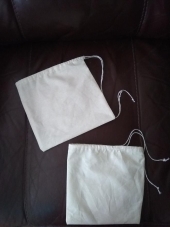posted 13 years ago
In an effort to make this thread do more things, I'm also interested in the difference between liquifying and steeping compost tea.
When I wash out the bucket I use to spread compost, I use the now dirty water to water the garden. Why would buying a bubbler from an aquarium store, bagging up my compost and steeping it for a few days be better? Plopping the compost on the garden seems like much less work.
There's also nettle and comfrey teas that Sepp discusses in his book. He also recommends just using more or less anything green, steeping it, and putting it on the garden. In time you find your own recipe that works for you.
And what about letting the water slime over with algae and then putting algae on the garden?
Also, there's an article that says (google this:) "the jury is still out on compost tea". Any thoughts?
Thanks,
William




